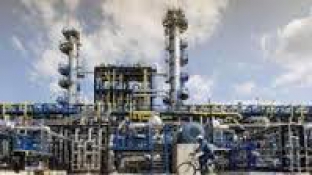Poll shows French Still Against Fracking
Just over three quarters (77%) of French citizens oppose shale gas developments in the coming years while just 23% support the idea, according to a new Ipsos poll conducted for environment lobby group WWF and released on November 24, five months before the next presidential election.
The poll shows an almost consensus on this issue across the political spectrum, though fracking remains a little bit more popular on the right. Only one in five of left leaning responders would favour shale gas developments. A third (34%) of people questioned identifying themselves as close to the right wing party Les Republicains would support shale developments while over a quarter (28%) of respondents close to the National Front far right party would approve it.
This is a significant decrease in support from two previous polls conducted in 2014. A BVA poll then showed 51% of right voters supported shale gas developments and a CSA poll found that 59% were open to the idea under strict conditions.
Right wing supports research
The poll came out in the midst of a primary fight between Francois Fillon and Alain Juppe to be the centre-right wing presidential candidate in 2017. The two former prime ministers faced off in a run-off on November 27. Fillon, who won 44% of the votes in the first round on November 20, ousting his old boss, former french president Nicolas Sarkozy, is poised to win.
Though shale gas has not been a top issue during the course of the campaign with low oil prices and the fracking ban, both candidates have expressed a willingness to encourage research while criticising Francois Hollande’s government approach.
"We cannot bar researchers from looking for new technologies. A state that limits the opportunity for research in any area has lost its common sense. A researcher must always be able to research. It does not mean we are going to conduct shale gas operations to run our power plants," Fillon told BFMTV on November 18, echoing previous remarks he made on the same network in 2012:
“We cannot be afraid of everything. We are living in a country where people fear foreigners, nuclear energy... shale gas… I admit the fact that the majority in Congress has tightened the law banning all experiments underway at that time against my own wishes. It’s a criminal approach not to conduct research. It shows a medieval mentality."
Juppe, who ran on a more moderate platform, called for the creation for an experimental site. “France should have an experimental centre to have a better and accurate understanding of what is at stake. Instead of refusing everything, I think this center would be useful under strict control necessary precautions so we can select techniques with an acceptable impact on the environment," Juppe said.
The party platform adopted under Sarkozy’s leadership last May favours researches on alternatives techniques to the hydraulic fracturing safe for the environment without overturning the the fracking ban passed in 2011.
Lowering expectations
A clear indication the election of a right-wing candidate in May 2017 may not be a game changer in terms of shale gas policies as voters think the next government should embrace clean energies. According to the Ipsos poll, 77% of people interviewed say renewables energies should be the environmental priority of the next government and 73% say the government should meet the goals set at the UN climate change conference in Paris in December 2015.
Lacq

(Credit: Total)
The shale gas debate was revived several times during Francois Hollande first term, including in 2012 a buried report that showed an alternative technique to hydraulic fracturing that was safer for the environment and would have created 225,000 jobs. The legal decision to re-award to Total a permit owned by the oil company was repealed after parliament passed the fracking ban in 2011 which was followed by anti-fracking protests. Total still has a tiny amount of production from the almost depleted Lacq field; but otherwise France imports its gas, mostly from Russia, Norway and The Netherlands, and state controlled Engie is in regular talks with them to lower the price it pays.
Kevin Bonnaud


